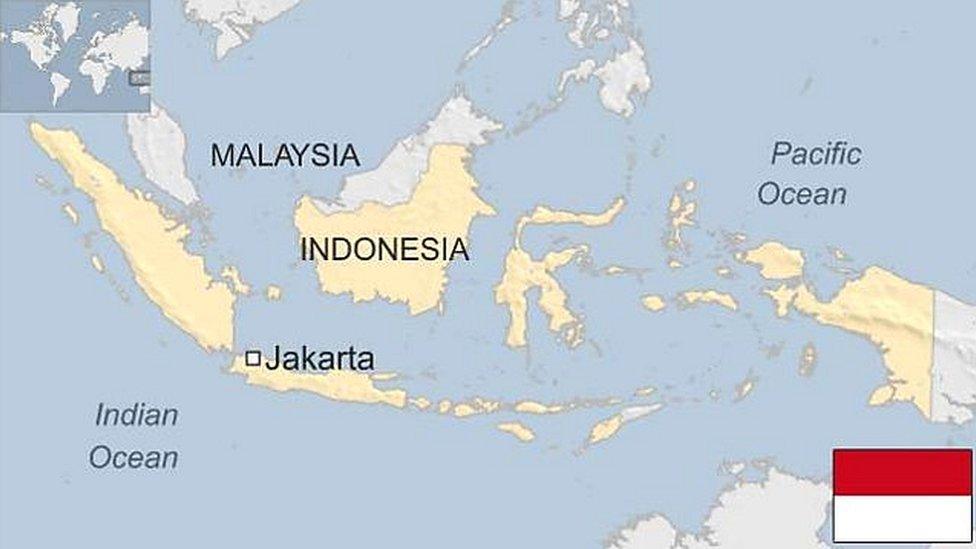Flooding tests 'Jakarta's Obama'
- Published
Joko Widodo about his first 100 days as governor of Jakarta
They call him Jakarta's Obama. Joko Widodo was elected governor of Jakarta in September last year thanks to overwhelming support from the city's urban poor and middle classes.
Hugely popular with young people, many in Indonesia's capital believe he is able to do no wrong - that he is a cut above other Indonesian politicians, because of his humble and clean reputation.
Previously the governor of Solo, a far smaller city than Jakarta, Mr Widodo campaigned on a pro-people platform, promising Jakarta residents that he could bring real change to their beleaguered city.
But just 100 days in to the job, he has already had to face his first big test. On 17 January, swathes of dirty brown floodwaters engulfed many parts of Jakarta after heavy torrential rains caused dams to burst and rivers to overflow.
To date, at least 20 people have died because of the flooding, which has caused millions of dollars worth of damage to homes and businesses.
The floods highlighted the basic infrastructure issues Jakarta has been grappling for decades.
Jakarta residents are looking to their hero, Mr Widodo, to prove that he is up to the job of governing their city.
"I have declared a state of emergency for Jakarta until 27 January," he said on national television, in response to the disaster.
"We need to take steps that haven't been taken before, like building deep tunnels and a big dam, because this is the capital city. "
Courtesy calls
Mr Widodo has high expectations to meet, particularly from among Jakarta's urban poor.
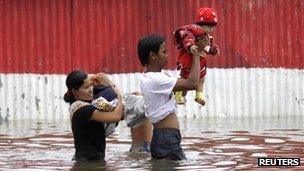
Parents fear for the effects of the floodwater on young children
In the slum neighbourhood of Kampung Pulo, one of the areas of Jakarta which is regularly affected by floods, young children wade through the muddy water to get home from school.
Mothers carry many of the smaller children on their backs, worried about the waterborne diseases the flooding could bring.
Residents here say that floodwaters often reach 2-3m (6-9ft), engulfing their homes, destroying their belongings, and threatening their lives and livelihoods.
But many are feeling more hopeful now that Joko Widodo, known popularly here as Jokowi, someone they helped to put in to office, is in power.
Suhendra, a resident of 30 years, says his home and business - a small convenience shop - are regularly flooded.
He has complained that in the past it was only the poor areas that get flooded - the richer, posher parts of town are spared.
But he is hoping that with Mr Widodo in power, things will be better.
"He's already been here to visit us four times, during these floods," Suhendra said.
"He's very nice to the people - he is not like the old governors. Jokowi cares about us, the poor people. He's introduced subsidised healthcare and education for us, we didn't have that before."
To be sure, Mr Widodo has already made some significant achievements during his short time in office. But he is also very aware of the need to show that he is working hard - something he alluded to during a recent interview with the BBC.
"Support from the people is very important," he said in response to a question about his regular visits to the poorer parts of Jakarta.
"This is public participation, so when I ask them [residents of slums] what they need, they say: 'Governor, I need this, Governor, I want this'. I think that it's important to make these discussions and dialogues, so people feel like we are giving good attention to their problems."
But the new governor's critics say he needs to spend less time paying courtesy visits and more time fixing Jakarta's problems.
"It's time for a reality check," said Ary Hermawan, a deputy editor of the Jakarta Post.
Mr Hermawan was a fan of the new governor in the lead-up to the election, championing Mr Widodo's pro-people platforms.
But he says he is now disappointed with the lack of progress on many of Mr Widodo's promises.
"He needs to do more," Mr Hermawan said. "We don't need a governor who just shows the people that he cares. We want a governor who can really convince us that 'I am capable, that I can solve this' - in the long term at least. That's the problem with Jokowi."
'A simple man'
Mr Widodo's job is certainly not an enviable one. It is not just annual floods that he has to deal with. A daily part of life in Jakarta is battling through the city's world-famous traffic jams - one of the reasons why the Indonesian capital has earned the moniker of being one of the most un-liveable cities on the planet.
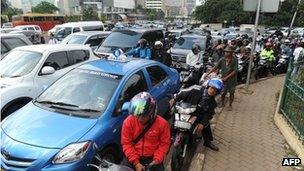
Joko Widodo faces the challenge of tackling Jakarta's crippling traffic problems
But in the last week, after what his detractors said was far too much unnecessary dithering, the new governor announced plans to build a mass rapid transport system - a solution he hopes will fix many of the issues with traffic in this city.
It's only one of the many measures he must take to infuse the citizens of Jakarta with confidence, and convince them that he is a leader who can make a difference.
Mr Widodo is seen as a clean politician - a man who listens to the people. He is often compared to US President Barack Obama, not just because of his tall and lanky frame, but because of his ability to empathise with the common man.
"I am no Obama, I am just a simple man," he chuckles when asked about the comparison. But he becomes more serious when asked about the burden of being so popular.
"Being Jakarta governor - yes it gives me headaches sometimes but I still have fun," he said. "I must work from morning to the next morning if I have to, to show the people that I am working. That's what they want to see from me."
- Published21 January 2013
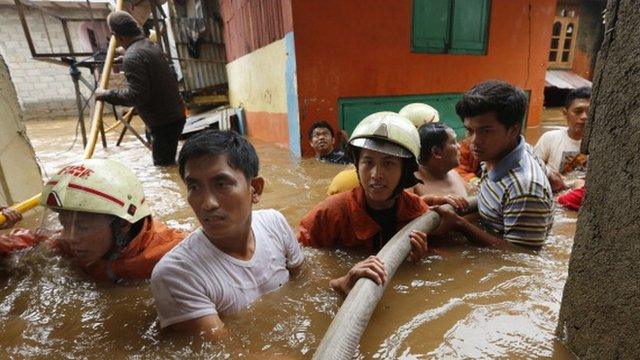
- Published17 January 2013
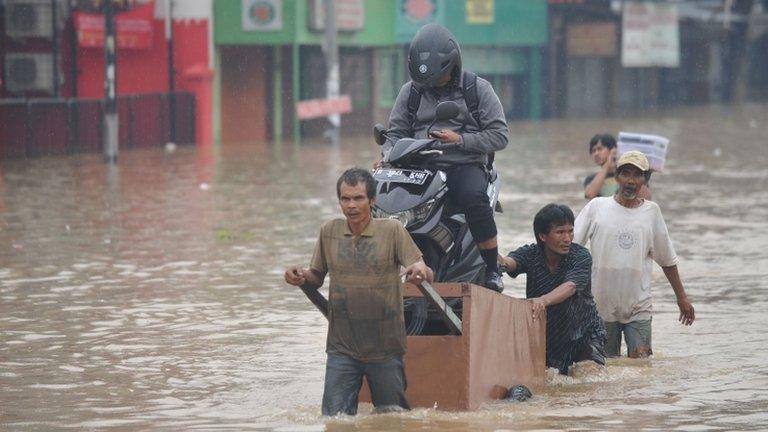
- Published20 September 2012
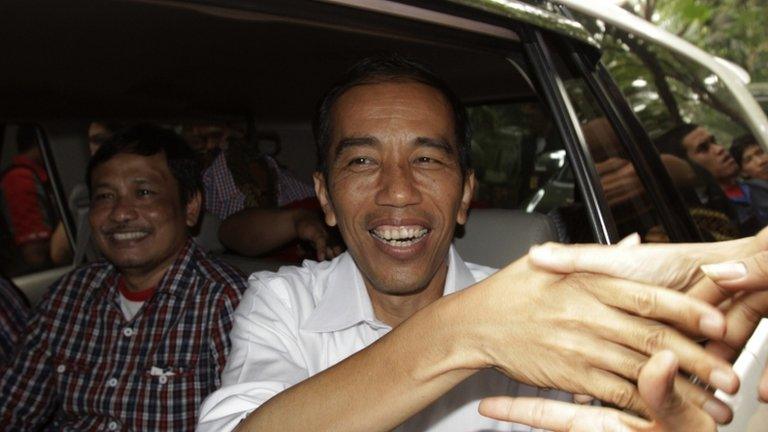
- Published25 October 2024
